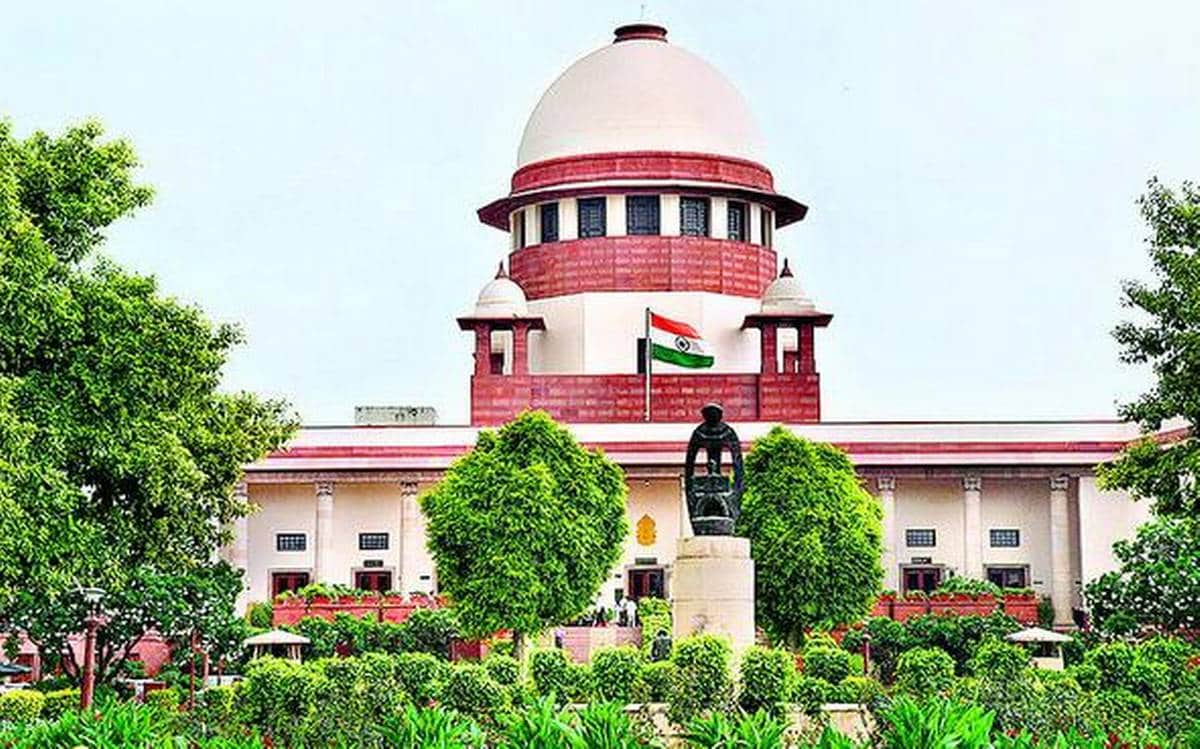In a significant development, we saw how just recently on March 3, 2022, the Karnataka High Court in a leading judgment titled State of Karnataka v Somanna in Criminal Petition No. 8167/2020 and cited in 2022 LiveLaw (Kar) 86 has stated in no uncertain terms that under the Protection of Children from Sexual Offences Act, 2012, the prosecution can cross examine the victim on her turning hostile. We will see while discussing in detail in this case how the state government had approached the court challenging an order of the Principal District and Sessions Judge, Chamarajnagar, whereby permission to State to cross-examine the victim on her turning hostile was denied, in a case arising out of the provision under POCSO Act and Sections 9, 10 and 11 of the Prohibition of Child Marriage Act, 2006. But henceforth the lower courts must take this into account what the Karnataka High Court has held so clearly in this case.
To start with, this notable judgment authored by a single Judge Bench comprising of Hon’ble Mr Justice M Nagaprasanna first and foremost puts forth in para 1 that, “The State is before this Court in the subject petition calling in question order dated 16-09-2019 passed by the Principal District and Sessions Judge, Chamarajnagar in Special Case No.184 of 2019, whereby the learned Sessions Judge declined to permit the State to cross-examine the victim on her turning hostile in a case arising out of the provisions of the Protection of Children from Sexual Offences Act, 2012 (‘POCSO Act’ for short) and Sections 9, 10 and 11 of the Prohibition of Child Marriage Act, 2006.”
While elaborating the facts briefly, the Bench then lays bare in para 2 stating that, “A complaint is registered 29-04-2019 in Crime No.115 of 2019 for offences punishable under Section 376(n) read with Section 34 of the IPC, Sections 4, 6, 8, 12 and 17 of the POCSO Act and Sections 9, 10 and 11 of the Prohibition of Child Marriage Act. The complaint was registered for an offence that was committed on 02-12-2018. The allegation was that accused Nos.2 to 10 having knowledge that the victim girl was minor got her marriage with accused No.1 on 02-12-2018 and accused No.1 knowing full well that the victim was a minor girl had committed sexual assault on her many a times. In the trial, recording of evidence of prosecution witnesses commenced on 16-09-2019 on which day the victim turns hostile. On her turning hostile, the State seeks permission of the learned Sessions Judge to cross-examine the witness. The learned Sessions Judge having declined such cross-examination drives the State to this Court in the subject petition.”
To put things in perspective, the Bench then envisages what forms the cornerstone of this learned judgment in para 4 that, “The only issue that falls for my consideration is whether the victim under the POSCO Act can be permitted to be cross-examined once she turns hostile. Before considering the issue, I deem it appropriate to notice the provisions of the POCSO Act which deals with the procedure and powers of the Special Court. Section 33 of the POCSO Act reads as follows:
33. Procedure and powers of Special Court.- (1) A Special Court may take cognizance of any offence, without the accused being committed to it for trial, upon receiving a complaint of facts which constitute such offence, or upon a police report of such facts.
2) The Special Public Prosecutor, or as the case may be, the counsel appearing for the accused shall, while recording the examination-in-chief, cross-examination or re-examination of the child, communicate the questions to be put to the child to the Special Court which shall in turn put those questions to the child.
(3) The Special Court may, if it considers necessary, permit frequent breaks for the child during the trial.
(4) The Special Court shall create a child friendly atmosphere by allowing a family member, a guardian, a friend or relative, in whom the child has trust or confidence, to be present in the court.
(5) The Special Court shall ensure that the child is not called repeatedly to testify in the court.
(6) The Special Court shall not permit aggressive questioning or character assassination of the child and ensure that dignity of the child is maintained at all times during the trial.
(7) The Special Court shall ensure that the identity of the child is not disclosed at any time during the course of investigation or trial:
PROVIDED that for reasons to be recorded in writing, the Special Court may permit such disclosure, if in its opinion such disclosure is in the interest of the child.
Explanation: For the purposes of this sub-section, the identity of the child shall include the identity of the child’s family, school, relatives, neighbourhood or any other information by which the identity of the child may be revealed.
(8) In appropriate cases, the Special Court may, in addition to the punishment, direct payment of such compensation as may be prescribed to the child for any physical or mental trauma caused to him or for immediate rehabilitation of such child.
(9) Subject to the provisions of the Act, a Special Court shall, for the purpose of the trial of any offence under this Act, have all the powers of a Court of Session and shall try such offence as if it were a Court of Session and as far as may be, in accordance with the procedure specified in the Code of Criminal Procedure, 1973 (2 of 1974) for trial before a Court of Session.”
In terms of sub-section (2) of Section 33 of the POCSO Act, the Special Public Prosecutor or as the case would be, the counsel appearing for the accused shall, while recording examination-in-chief, cross-examination or re-examination of the child communicates the questions to be put to the child to the Special Court which shall in turn put those questions to the child. Therefore, the victim is permitted to be cross-examined under the POCSO Act itself on her turning hostile which would also cover the situation under sub-section (2) of Section 33 of the POCSO Act. The Apex Court in the case of NIPUN SAXENA v. UNION OF INDIA (2019) 2 SCC 703 while interpreting Section 33 of the POCSO Act has held as follows:
“47. Any litigant who enters the court feels intimidated by the atmosphere of the court. Children and women, especially those who have been subjected to sexual assault are virtually overwhelmed by the atmosphere in the courts. They are scared. They are so nervous that they, sometimes, are not even able to describe the nature of the crime accurately. When they are cross-examined in a hostile and intimidatory manner then the nervousness increases and the truth does not come out.
48. It is, therefore, imperative that we should have courts which are child-friendly. Section 33(4) POCSO enjoins on the Special Court to ensure that there is child-friendly atmosphere in court. Section 36 lays down that the child should see the accused at the time of testifying. This is to ensure that the child does not get scared on seeing the alleged perpetrator of the crime. As noted above, trials are to be conducted in camera. Therefore, there is a need to have courts which are specially designed to be child-friendly and meet the needs of child victims and the law.”
The Apex Court delineates importance of having a court room and the atmosphere in such court room to be child friendly. A Division Bench of this Court following the said judgment of the Apex Court in DOULA v. THE STATE Criminal Appeal No.100260/2016 decided on 22-07-2020 has held as follows:
“45. To constitute the offence of either rape under Section 375 of IPC or penetrative sexual assault as defined under Section 5 of the POCSO Act, the victim is not required to explain in detail before the court, the horrifying act. Sexual violence is not only a dehumanising act but also intrudes into the victim’s right of privacy and sanctity. Expecting the victim to explain step by step as to how the accused violated her, degrades and humiliates her. Where the victim is a helpless child or a minor, it leaves behind a traumatic experience. The courts must be sensitive towards the plight of the victim of such offence. Under the guise of eliciting evidence, she cannot be compelled to reproduce minute details of the horrendous act.
46. Probably keeping in mind the tendency of posing all kinds of questions to humiliate the victim in a bid to deal a blow to her honour and to make her relive the horror while in the witness box, Section 33 (2) of the POCSO Act is enacted to safeguard and insulate the minor victim from the same. It mandates that while recording the evidence of the child, the Special P.P or as the case may be the counsel for the accused to communicate to the special court, the question to be put to the victim and the court shall in turn put it to the victim. Further, Section 33(6) of the POCSO Act mandates the Court not to permit aggressive questioning or character assassination of the child and to ensure maintaining the dignity of the child at all times during the trial.
47. Position of law regarding appreciation of the evidence of the child witness is well settled. A child witness, if found competent to depose to the facts and if her version is reliable, such evidence could be the basis of conviction. The only precaution which is to be taken by the court while appreciating such evidence is to rule out any possibility of tutoring. If the Court is satisfied that the evidence of the child is not the tutored version and if it is found reliable, the same can be the sole basis for conviction.”
Later this Court in the case of GOUTAM AND OTHERS v. THE STATE OF KARNATAKA Criminal Petition No.200908 of 2019 decided on 04-09-2019 has held as follows:
“6. The Protection of Children from Sexual Offences Act, 2012 is a special enactment. Section 31 of the POCSO Act states that the provisions of the Code of Criminal Procedure applies to the proceedings before the Special Court except as otherwise provided in the said Act. Section 33 of the POCSO Act provides for procedure and powers of the special court in conducting trial.
7. Section 33(2) of the POCSO Act states that the Special Public Prosecutor or the defence counsel while recording the evidence to the child witness shall communicate the questions to be put to the child to the Special Court and in turn, the Special Court shall put such questions to the child. That means the defence or the prosecution has no right of direct examination or cross-examination of the victim child.
8. Section 33(5) of the POCSO Act, states that the Special Court shall ensure that the child is not called repeatedly to testify in the Court. Even to recall the child witness or any other witness in a trial, the accused has to explain his lapses and touching which matter he wants to further cross-examine or examine the witnesses. In the case on hand, the application is as bald as possible.”
On the touchstone of the judgments rendered by the Apex Court, Division Bench and coordinate Bench of this Court, the order impugned will have to be considered.
What would unmistakably emerge from a perusal of the impugned order is that it runs counter to Section 33 of the POCSO Act, judgments rendered by the Apex Court and that of this Court and resultantly becomes unsustainable. Therefore, the State is to be permitted to cross-examine the victim. But, such cross-examination can be only in terms of Section 33 of the POCSO Act which mandates that while cross-examination questions shall be put to the Court and the Court in turn to put the same questions to the victim. The learned Sessions Judge shall take such care and caution in transmitting the questions to the victim to be in strict consonance with the provisions of the POCSO Act.”
Finally, the Bench then concludes by holding in final para 5 that, “For the aforesaid reasons, I pass the following:
O R D E R
(i) Criminal Petition is allowed and the order dated 16.09.2019 passed by the Principal District and Sessions Judge, Chamarajnagar in Special Case No.184 of 2019, stands quashed.
(ii) The matter is remitted back to the hands of the learned Sessions Judge dealing with the matter to permit cross-examination of the victim strictly in accordance with Section 33 of the POCSO Act.”
In conclusion, the Karnataka High Court has forwarded adequate reasons to substantiate wholly what it held that prosecution can cross examine the victim on her turning hostile. Hon’ble Mr Justice M Nagaprasanna must definitely be commended for it. Of course, there is no rhyme or reason to not agree wholly with what he has held so ably by citing relevant case laws as also the relevant provisions of the POCSO Act to substantiate what it held so convincingly! No denying or disputing it!
In terms of sub-section (2) of Section 33 of the POCSO Act, the Special Public Prosecutor or as the case would be, the counsel appearing for the accused shall, while recording examination-in-chief, cross-examination or re-examination of the child communicates the questions to be put to the child to the Special Court which shall in turn put those questions to the child.


 Opinion2 years ago
Opinion2 years ago
 Fashion7 years ago
Fashion7 years ago
 Entertainment7 years ago
Entertainment7 years ago
 Entertainment7 years ago
Entertainment7 years ago
 Opinion2 years ago
Opinion2 years ago
 Business News2 years ago
Business News2 years ago
 Policy&Politics2 years ago
Policy&Politics2 years ago
 Business News2 years ago
Business News2 years ago








